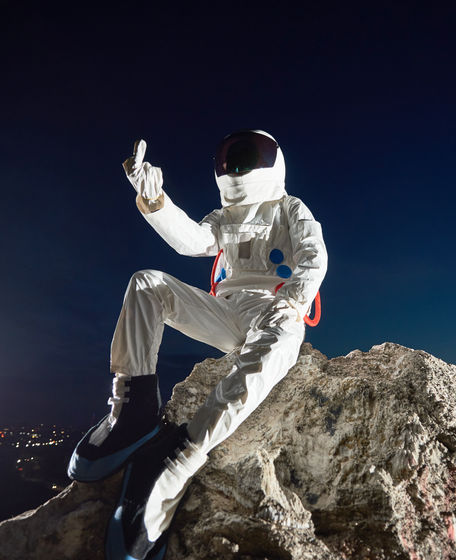It turns out that male astronauts are at high risk of suffering from ``erectile dysfunction'', and there is hope that ``antioxidants'' may be effective

Momentum toward space is increasing, with
Neurovascular dysfunction associated with erectile dysfunction persists after long‐term recovery from simulations of weightlessness and deep space irradiation - Andrade - 2023 - The FASEB Journal - Wiley Online Library
https://faseb.onlinelibrary.wiley.com/doi/abs/10.1096/fj.202300506RR
Erectile dysfunction risk may rise on lengthy space missions, rat study reveals | Live Science
https://www.livescience.com/health/sex/erectile-dysfunction-risk-may-rise-on-lengthy-space-missions-rat-study-reveals
On Earth, a thick layer of the atmosphere prevents radiation from falling from space, so life on Earth, including humans, can survive without being directly exposed to the high-energy particles of galactic cosmic rays (GCR) .
However, this is not the case for astronauts working outside the Earth, so in just six months on the International Space Station (ISS), for example, an astronaut will receive the same amount of cosmic rays as in 25 lifetimes on Earth. It is said that it will be bathed in water. Exposure to high levels of radiation increases the risk of many things, including cancer, neurological disorders, and cardiovascular disease.

One possible problem is erectile dysfunction. Even on Earth, more than half of men between the ages of 40 and 70 are said to suffer from erectile dysfunction, and the impact of outer space on reproductive function is significant for male astronauts embarking on deep space exploration.
A new study published in the peer-reviewed scientific journal The FASEB Journal on November 22, 2023, involved raising 86 adult male rats in a simulated space environment, exposing them to low gravity and radiation. The purpose is to investigate the effect on reproductive function.
To simulate low gravity, we used a technique called ``hindlimb unloading,'' in which the animal's lower body is suspended by its tail, so that no weight is placed on the animal's body for four weeks. This recreates two space environments: ``changes in body fluids and internal pressure brought about by low gravity'' and ``no load on the musculoskeletal system.''
Rats were also irradiated with low (0.75 Gy) or high (1.5 Gy) doses of radiation in the GCR simulator at NASA's Space Radiation Laboratory. For comparison, humans living on earth
About 12 to 13 months into the experiment, the researchers euthanized the rats and took and analyzed samples of the corpus cavernosum in the genitals and the internal pudendal artery, a blood vessel important for erections. The results confirmed that both GCR and, to a lesser extent, weightlessness, impair the function of both the corpus cavernosum and blood vessels.

Oxidative stress was primarily responsible for damaging sexual function in male rats. Oxidative stress is damage to cells and genes caused by the accumulation of free radicals , which are atoms and molecules with unstable electrons, in the body. Free radicals are generated through daily metabolic activities in the body, but they are also generated when radiation reacts with water in the body.
Additional experiments conducted by the research team also showed that some of the effects of GCR can be alleviated by treatment with certain antioxidants.
One of the study's authors, Justin D. La Favor of Florida State University, said, ``Although the negative effects of galactic cosmic rays were long-term, treatment that focuses on oxidation reactions in body tissues can improve function.'' 'This suggests that erectile dysfunction is treatable.'
The research team plans to further investigate the cause and investigate ways to prevent its effects. The researchers note that it is also important to examine the effects of deep space exploration on female reproductive function, as future space missions will include female astronauts.
Related Posts:
in Science, Posted by log1l_ks







